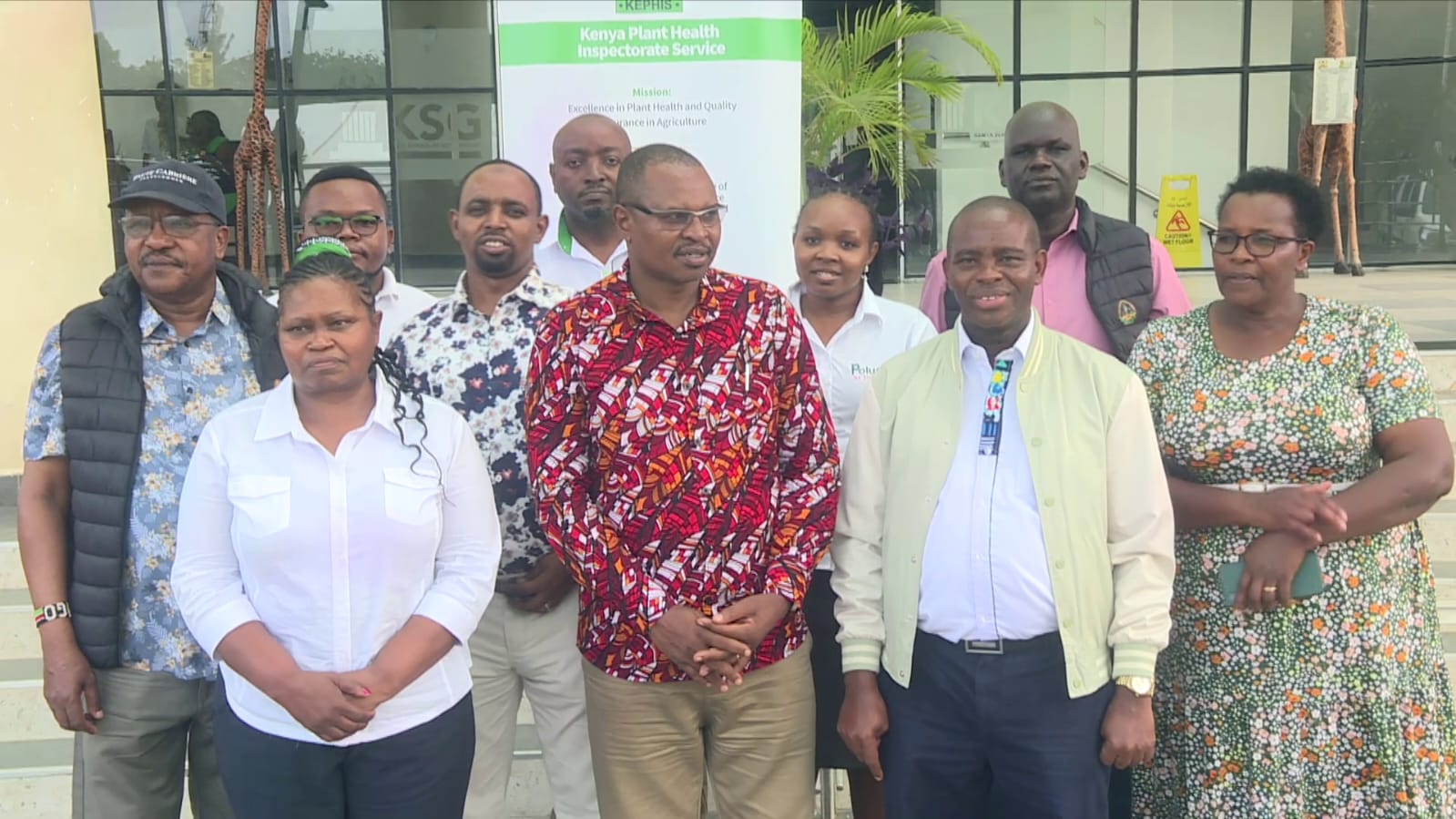

Kephis chairman Joseph
M'eruaki [red shirt] and managing director Theophilus Mutui [front, R] at Kenya
School of Government on Wednesday /BRIAN OTIENO
Farmers have been urged to be extra vigilant when buying imported farm inputs, as Kenya faces increasing threats from invasive pests.
The Kenya Plant Health Inspectorate Service on Monday warned that the risk of introducing destructive pests into the country remains high, especially through shipping.
At the launch of a two-week training for private seed inspectors and analysts at the Centre of Phytosanitary Excellence in Nairobi, Kephis director of seed certification Simon Maina—who represented managing director Prof Theophilus Mutui—said vigilance is crucial to safeguarding food security.
The training, which runs from August 18 to 29 in Nairobi and Marigat, will boost efficiency in seed certification by involving private inspectors to complement Kephis.
Maina stressed that pests and diseases can quickly endanger food security and biodiversity.
His remarks follow Kephis’ recent interception of a pest-infested vessel carrying heavy machinery from Italy. The ship, destined for Uganda, docked in Mombasa on July 29.
Prof Mutui revealed that the vessel harbored the Asian Gypsy Moth (AGM)—a highly destructive pest common in Asia, Canada and New Zealand.
“We avoided a very serious biosecurity disaster. The AGM can devastate forestry and crops like maize and wheat. Had it entered Kenya, the losses would have been monumental,” he said.
The moth’s caterpillars feed on over 500 plant species, stripping forests bare and crippling agriculture. According to experts, such an invasion could wipe out industries and cost billions in trade revenue.
To avert the threat, the vessel was treated at sea before docking. Mutui said the early alert came from the shipping line, allowing Kephis inspectors to act immediately under its new vessel and container phytosanitary inspection programme launched this year.
Kephis inspects all cargo entering the country—from coal and farm machinery to used vehicles and wooden packaging—as these can harbour pests.
Notorious species on the watchlist include the khapra beetle, which destroys grains and fruit flies that cripple horticulture.
“The recent interception is a clear warning that dangerous pests can sneak in through unexpected channels. Spotting them early and acting fast is our best shield,” Mutui said.
Kephis chairman Joseph M’eruaki said the interception prevented “a whole industry from being wiped out,” noting that Kenya’s global leadership in exports like avocados and flowers must be protected at all costs.
He added that Kenya may face “seen and unseen enemies” seeking to undermine its competitiveness in agricultural exports.
The agency has called for stronger collaboration with shipping and maritime players, including port authorities, freight forwarders and vessel operators.
By sharing information early, maintaining hygiene standards and adhering to phytosanitary protocols, the industry can help safeguard agriculture, environment and trade.

















